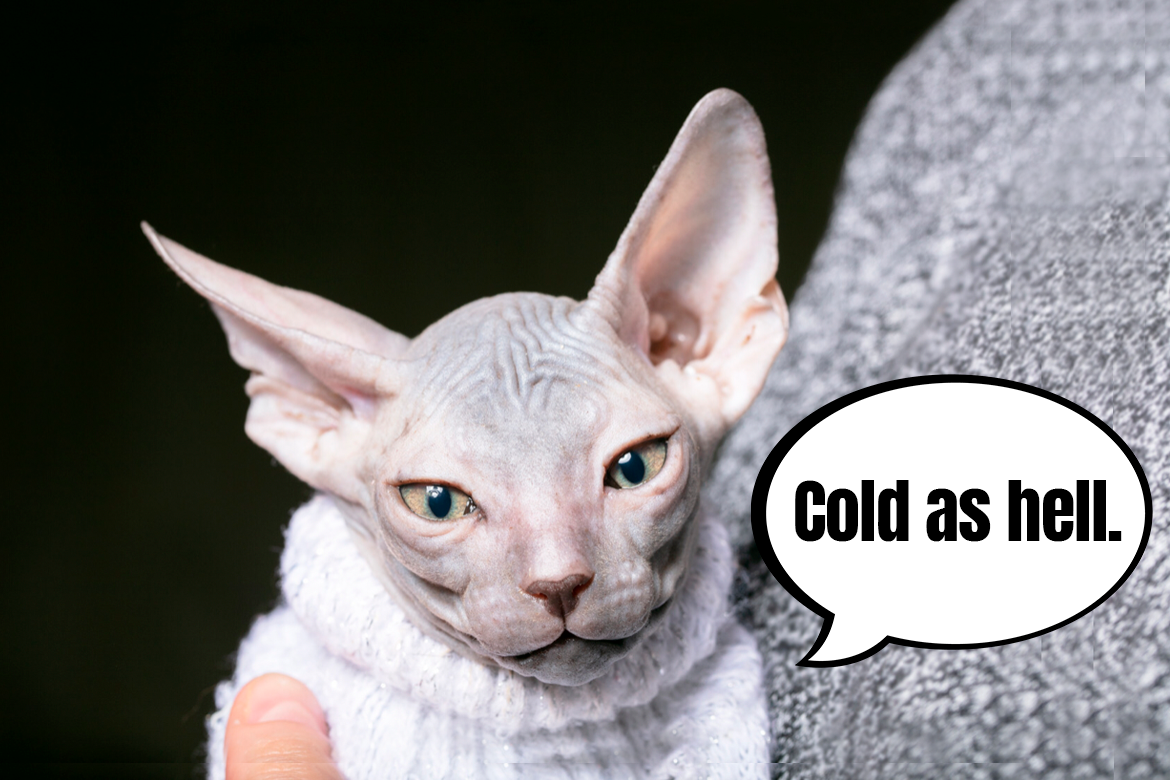Cat’s immune system plays a very important part in their overall health. Even if your cats are completely domestic, with no contact with the outside world and other animals, we should still be aware of the possibility of bringing some viruses and bacteria to our house. Cats might get a cold (e.g. from draughts in the house), a sore throat, they can sneeze, cough and show typical signs of feeling poorly. Is it necessary, though, to support their immune systems in the winter? When should you consult your vet and start your kitty on supplements that would help their immunity?
When should we support our cats’ immune system?
Healthy, good quality and well-balanced commercial cat food should provide enough vitamins and minerals to properly support your cat’s immune system. If you’re feeding a BARF diet, you’re the one responsible for making it well-balanced and supplementing the food with necessary nutrients. Regardless of the method you choose for feeding your cat, if the diet is healthy and species appropriate and the kitty gets regular health checks at the vets, you don’t necessarily need to worry about extra supplements and artificial boosters for their immune systems. It’s a slightly different case, however, if your cat is stressed, they’re just after their vaccinations, you’re taking care of a senior cat or your kitty gets sick.
How to recognise your cat isn’t feeling well?
Cat’s immunity might get lower in different situations. Let’s remember that their bodies react to all sorts of viruses and bacteria just like hooman bodies do – they use the immune system to protect themselves from illnesses. Sudden weather changes, draughts, getting cold, being sick and in need of antibiotics, recovering after surgeries, vaccinations or even stress might weaken cats’ bodies and make them more susceptible to infections. It’s no surprise that feline upper respiratory infections are commonly seen in cats living on the streets, where they’re not always able to protect themselves from getting cold or avoid meeting sick cats. Your domestic cat may have to deal with some airborne viruses and bacteria, but it’s also at risk of having contact with those from the outside that you might bring to your house on your shoes and clothes. For cats that do go outside, the risk is even greater.
How vaccinations affect cats’ immune system?
Getting vaccinations for your cats is one of the most basic responsibilities of a cat carer. Shots for panleucopenia, calicivirus and herpesvirus are the three necessary vaccinations helping to protect your kitty from the most common and destructive cat illnesses. Remember that they should be administered to kittens and repeated every three years for adult cats (this is a suggested feline vaccination schedule in Poland, but it might be different for your country). Unfortunately, not many cat carers are aware that their kittie’s immune system is a little weaker right after any vaccination and their tiny bodies are more susceptible to infections for a while. It’s good to take special care of your cat’s health at that time, provide them with a good and healthy diet and, if necessary, as your vet for extra supplements that will boost your cat’s immunity right up.
When a cat is stressed out
One of the biggest factors in building cat’s immunity and well-being is avoiding stressing out your feline friends. Remember, our dear fabCat, that they’re delicate creatures who love having a good daily routine, control over their territory and some set, repetitive daily activities. Any changes to their surroundings, loud noises, car rides, visits to the vet’s, boredom or a new family member (pet or human) can stress your cat out, which in turn causes lower immunity and higher risk for feeling unwell or catching an infection.
Chronic or intensive stress can make a cat feel unwell, lower their appetite, make cats apathetic, as well as increase their risk of catching a cold, having bladder and kidney issues or even more serious autoimmune diseases. Not every cat will react to stress the same way – we know very well that some furries are never bothered by travelling or noise. This only shows, however, that it’s really important to monitor your cat’s behaviour, observe them closely and eliminate their biggest stressors where possible.
How do you support your cat’s immune system?
Two of the most important factors that affect your kitty’s health directly are a healthy diet and general lack of stress. It’s up to you, our dear fabCat, to provide your furry friends with a proper, species appropriate food. If necessary, you can consult a cat dietitian who will help you find a good quality commercial food and ease the process of switching your cat to a better diet (speaking from experience, it’s never easy). Veterinarians are not always trained well in nutrition and dietary care, which is why the support they give you might be somehow limited.
The second puzzle piece here is stress prevention. Limit, as much as it’s possible, your cat’s exposure to stress. Provide them with good quality hides (like our MIA cat house), build up their territory with scratching posts and cat highway, try to give them access to secure windows (so they can observe the world outside safely) and, most of all, remember to play with your cats regularly – boredom is a real and often underestimated stress factor! In emergency situations, when there’s no way you can limit the stressors, try using artificial pheromones that can ease your cat’s stress. You can talk to your vet about using some extra supplements as well.
How to support your cat when they’re stressed? You can find some useful tips in our New Year’s article:
When supplements might be necessary?
Giving your cat additional supplements and booster formulas should always be consulted with a veterinarian or a cat dietitian first, supporting the decision with a proper health check-up. Vitamin deficiencies are equally as dangerous as overdosing them, which is why you should never act without your vet’s approval and never give your kitty human, dog or any suspicious, found-on-the-internet supplements. To naturally boost your cat’s immune system you can, even with a healthy diet, add raw egg yolks, omega 3 oil, brewer’s yeast and algae to their regular food (look up proper measurements first or, to be safe, supplement as often as once a week).
Do you, dear fabCats, know and use any supplements supporting your cat’s health and immunity? Or maybe you have experienced a feline cold before and, thanks to a quick veterinary response, you managed to help them without serious complications? Feel free to share your thoughts and opinions in the comments section. Meanwhile, we wish us all a quick return of a warmer weather outside – our kitties can’t wait for the balcony season to start!




